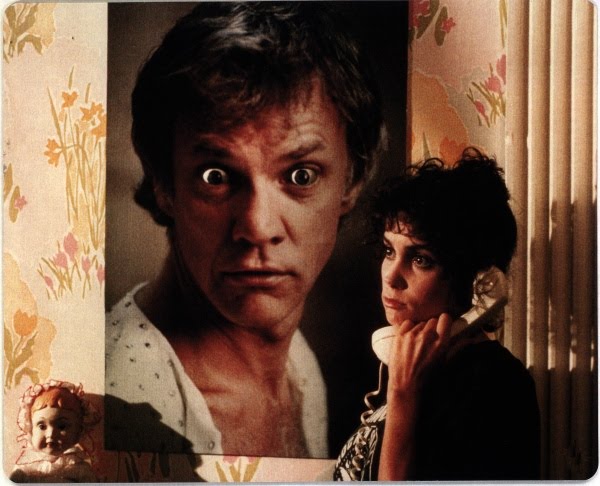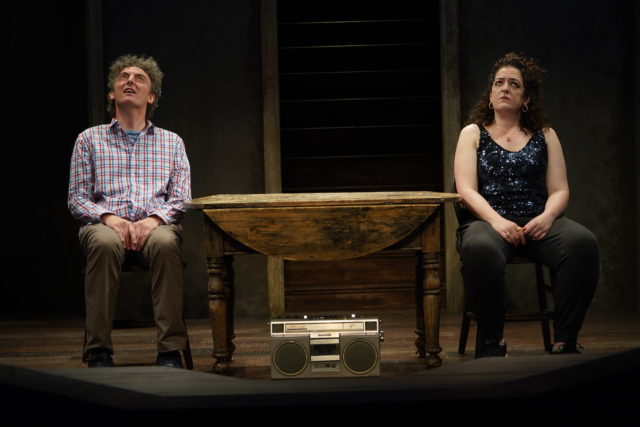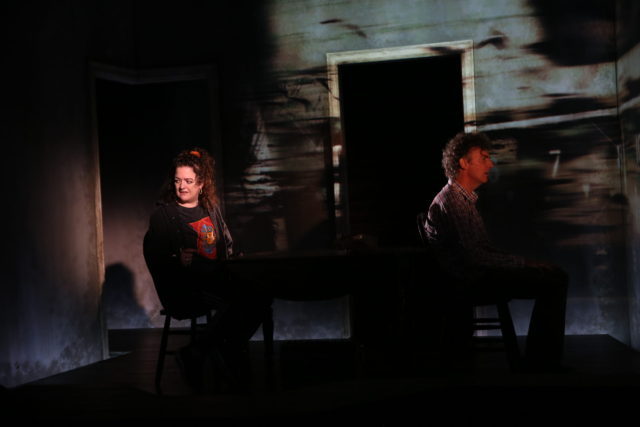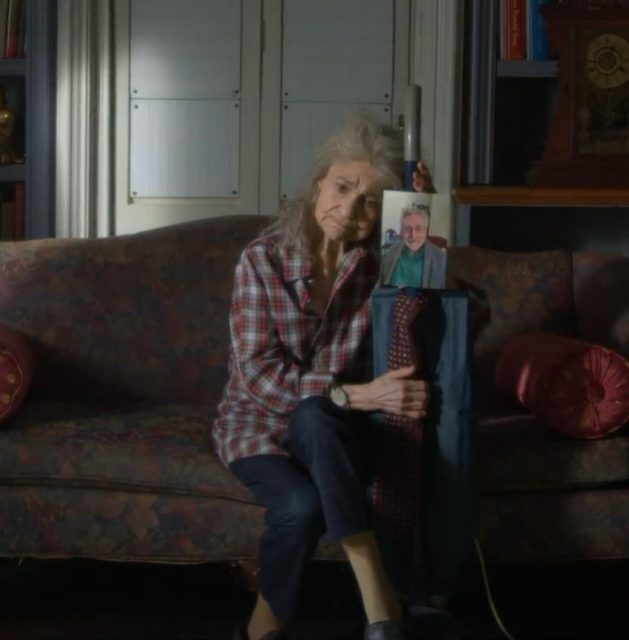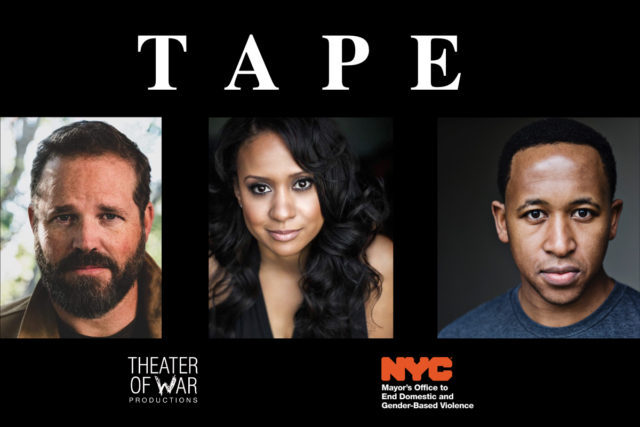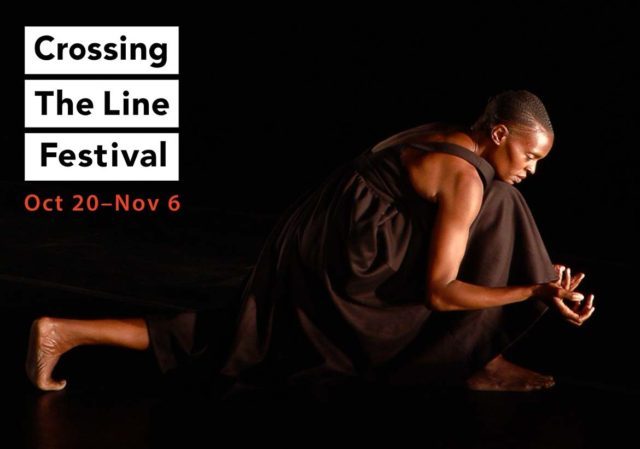SONGS FOR ’DRELLA (Ed Lachman, 1990)
Film Forum
209 West Houston St.
October 22-27
212-727-8110
filmforum.org
In December 1989, Velvet Underground cofounders John Cale and Lou Reed took the stage at BAM’s Howard Gilman Opera House and performed a song cycle in honor of Andy Warhol, who had played a pivotal role in the group’s success. The Pittsburgh-born Pop artist had died in February 1987 at the age of fifty-eight; although Cale and Reed had had a long falling-out, they reunited at Warhol’s funeral at the suggestion of artist Julian Schnabel. Commissioned by BAM and St. Ann’s, Songs for ’Drella — named after one of Warhol’s nicknames, a combination of Dracula and Cinderella — was released as a concert film and recorded for an album. The work is filled with factual details and anecdotes of Warhol’s life and career, from his relationship with his mother to his years at the Factory, from his 1967 shooting at the hands of Valerie Solanis to his dedication to his craft.
Directed, photographed, and produced by Ed Lachman, the two-time Oscar-nominated cinematographer of such films as Desperately Seeking Susan, Mississippi Masala, Far from Heaven, and Carol, the concert movie has just undergone a 4K restoration supervised by Lachman that premiered at the New York Film Festival a few weeks ago and is now running October 22-27 at Film Forum, with Lachman participating in Q&As following the 5:45 screenings on October 22, 23, and 24. (Producer Carolyn Hepburn will introduce the 5:45 show on October 27.) Songs for ’Drella is an intimate portrait not only of Warhol but of Cale and Reed, who sit across from each other onstage, Cale on the left, playing keyboards and violin, Reed on the right on guitars. There is no between-song patter or introductions; they just play the music as Robert Wierzel’s lighting shifts from black-and-white to splashes of blue and red. Photos of Warhol and some of his works (Electric Chair, Mona Lisa, Gun) are occasionally projected onto a screen on the back wall.
“When you’re growing up in a small town / Bad skin, bad eyes — gay and fatty / People look at you funny / When you’re in a small town / My father worked in construction / It’s not something for which I’m suited / Oh — what is something for which you are suited? / Getting out of here,” Reed sings on the opener, “Smalltown.” Cale and Reed share an infectious smile before “Style It Takes,” in which Cale sings, “I’ve got a Brillo box and I say it’s art / It’s the same one you can buy at any supermarket / ’Cause I’ve got the style it takes / And you’ve got the people it takes / This is a rock group called the Velvet Underground / I show movies of them / Do you like their sound / ’Cause they have a style that grates and I have art to make.”
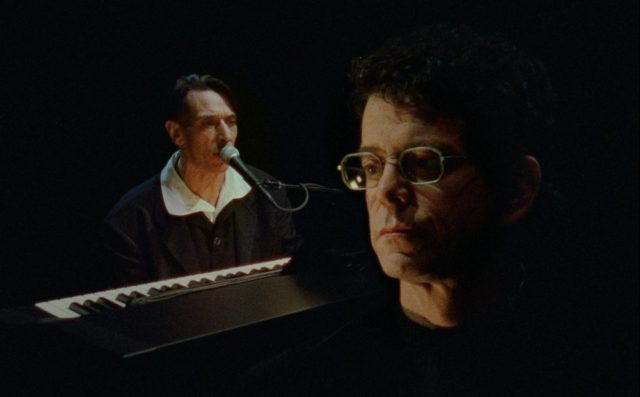
John Cale and Lou Reed reunited to honor Andy Warhol in Songs for ’Drella
Cale and Reed reflect more on their association with Warhol in “A Dream.” Cale sings as Warhol, “And seeing John made me think of the Velvets / And I had been thinking about them / when I was on St. Marks Place / going to that new gallery those sweet new kids have opened / But they thought I was old / And then I saw the old DOM / the old club where we did our first shows / It was so great / And I don’t understand about that Velvets first album / I mean, I did the cover / and I was the producer / and I always see it repackaged / and I’ve never gotten a penny from it / How could that be / I should call Henry / But it was good seeing John / I did a cover for him / but I did it in black and white and he changed it to color / It would have been worth more if he’d left it my way / But you can never tell anybody anything / I’ve learned that.”
The song later turns the focus on Reed, recalling, “And then I saw Lou / I’m so mad at him / Lou Reed got married and didn’t invite me / I mean, is it because he thought I’d bring too many people? / I don’t get it / He could have at least called / I mean, he’s doing so great / Why doesn’t he call me? / I saw him at the MTV show / and he was one row away and he didn’t even say hello / I don’t get it / You know I hate Lou / I really do / He won’t even hire us for his videos / And I was so proud of him.”
Reed does say hello — and goodbye — on the closer, “Hello It’s Me.” With Cale on violin, Reed stands up with his guitar and fondly sings, “Oh well, now, Andy — I guess we’ve got to go / I wish some way somehow you like this little show / I know it’s late in coming / But it’s the only way I know / Hello, it’s me / Goodnight, Andy / Goodbye, Andy.”
It’s a tender way to end a beautiful performance, but Lachman has added a special treat after the credits, with one final anecdote and the original trailer he made for Reed’s 1974 song cycle, Berlin. In addition, Songs for ’Drella is an excellent companion piece for the new Todd Haynes documentary, The Velvet Underground, which is also screening at Film Forum.
